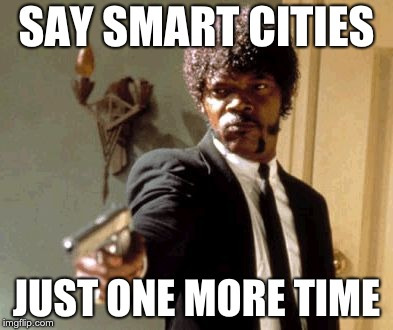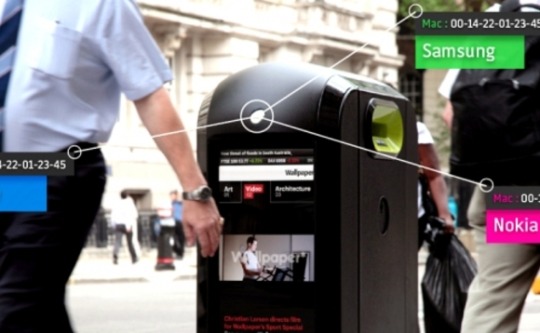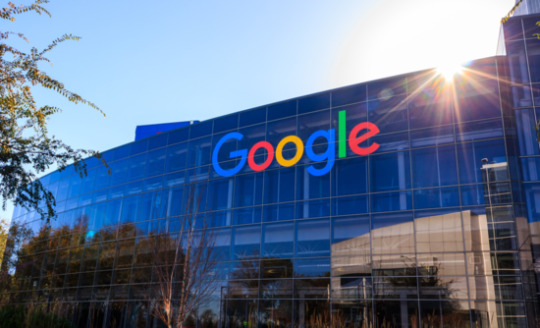Link

(Picture from information-age.com)
While cloud computing seems to be beneficial to businesses, it is also essential to make a good choice of cloud computing providers by concerning their safeguards, locations of servers, and laws applicable to ensure the security of your data.
"The biggest risk is giving up control of your data to someone else using different data centers in remote places" "What happens in the event of a disaster? You're also putting your data next to someone else's."
says Mr. Gavan Egan
0 notes
Text
Does privacy really exist in a smart city?
By I.T. WatchFox

(Meme generated by imgflip.com)
Nowadays, it can be said that there is none who are unfamiliar with the ‘Smart City’ – a concept of an exploitation of advanced technology and innovation to organize and develop our cities and communities. We are convinced by governments that the Smart Cities will lead to smarter lives with connectivity and convenience. It sounds perfect that technological infrastructures and networks will provide our security with smart devices, solve environmental issues and arrange transportation in urban areas, but the point is that all things in Smart Cities are mostly driven by collecting our personal data and monitoring our behavior 24/7! So, how will the fate of our privacy and freedom be? Are we willing to sell them to our governments?
A plan to engineer the Smart Cities seems good on paper. It is commonly claimed that the integration of technologies such as Artificial intelligence (AI), Face Recognition, Censors, Internet of Things (IoT) and Big Data will be used innovatively for surveilling behaviors of people and allocating resources in many capital cities.
Around 700 millions of CCTVs are going to cover all areas in Beijing. For example, a plan for ‘social credit system’ in which its citizens may have to hit minimum ‘social scores’ receivable from both individual and economic activities.
youtube
(Video from Youtube.com)
(Beijing is considered as the smartest city nowadays)
Another example is that the US police in New York have exploited the Big Data from CCTV to forecast crime possibility and lampposts equipped with microphones to detect gunshots and daily conversation of people as a result from a stricter security measure.

(Picture from alamy.com)
Departing from promoting friendly-environmental behavior, advertising LED screens attached to smart bins in London also have a hidden function of tracking wireless signal from phones passing nearby for an advantage of analyzing targeted group.

(Picture from v3.co.uk)
Whatever the reason would be, the incontrovertible fact remains that these technologies tend to seriously breach our privacy. While governments commit to providing us ideal lives with more facilities, security, and sustainability, we may have to sacrifice our humanity for them. I view that living in the Smart Cities is like being restrained in a ‘big boarding school’. Government compared as a teacher can monitor and dictate our doings. If they can trace and track every move of us 24/7, it means that it is not difficult for them to control our daily activities. Who knows? One day, with the aim of promoting healthy lives, governments may force us to wake up early, exercise and eat certain meals based on individual information gathered from those electronic measures. What will happen if governments can cooperate with big-tech companies to access all IoT in our houses?
Actually, the Smart Cities also make me afraid of a situation in sci-fi movies such as Hunger Game, I-robot and particularly Seven Sisters, in which there is no limit of what government can control over human beings.
youtube
(Video from youtube.com)
(Please click underlined words/sentences to approach sources/definitions)
0 notes
Link
Facebook’s case provides other social websites and ISSPs as data controllers a lesson. The foremost damage may not be about money but reputation in doing business and reliability of customers, especially in the age of GDPR.
So, be aware of every processing activity and be transparent to your users!
0 notes
Text
Intermediary’s content liability: a threat of the digital society
By I.T. WatchFox

(Picture from wired.com )
‘Intermediaries’ or online platforms like Google, Facebook, Twitter, and YouTube are considered as a success of today online world. We exploit them to access unlimited contents, share information freely, communicate others without boundary and express opinions to the public. Meanwhile, a considerable increase of unlawful and harmful online contents: copyright infringement, defamation, pornography, hate speech and privacy abuse, inspires governments to call for direct liability from intermediaries by introducing new policies and abolishing legal protections. However, instead of being an effective solution, I personally view that those prospective policies tend to be an unfair burden for intermediaries and cast negative effects upon the digital society in several aspects.
Freedom of expression

(Picture from globaleducates.com)
Information Society Service Providers (ISSPs) seem the most popular venue for people to discuss about social issues and exchange innovations. Intermediary liability policies may force ISPs to block and take down excessively user-generated contents which are viewed illegal, by mainly relying on a request submitted, without prescribing any process to be complied with in doing so. Perhaps, an excessive blockage of contents may be a result from a vague definition of illegal content. In other words, intermediary liability may change the role of ISSPs from ‘public domains’ to ‘content gatekeeper’, of which an operation can be intervened by any individual or government. Such policy seems to be contrary to the original concept of internet that aims to promote access to information and freedom of expression.
Privacy

(Picture from dribbble.com)
Content liability may motivate intermediaries to monitor their users more strictly i.e. it may dictate the social network websites to require sensitive personal information of users, in order to trace and gain access to the users’ online behaviors. This is somehow viewed as a potential accusation that may prevent them from being held liable. Such issue is questioned pertaining to processing unnecessary personal data and risk to privacy of users.
Innovation development

(Picture from dribbble.com)
Shifting content liability onto intermediaries may discourage ICT developers in procreating new features on the online platforms or new applications which apparently play crucial roles in facilitating our lives. If such platforms, which rely solely on active content and interaction among users, are overly regulated, we may not be allowed to see the new innovative online website anymore.
Economic growth

(Google’s Head Office at Mountain View, California, U.S.)
(Picture from greenbiz.com)
An issue will arise in the countries, in which the law prescribes liabilities or does not provide with any legal immunity for intermediaries. In terms of economics, potential ICT investors and stakeholders tend to assure that commercial incentives and conveniences with regard to an establishment their businesses are available. This is why most of the leading technological intermediary companies decided to set up head offices in the USA, in which an initial provision i.e. ‘Safe harbor’ exists.
In my view, it is possible that the intermediary liability would tackle a wrong issue, causing legal gaps wherein many sectors are unreasonably burdened while the real issues that ought to be regulated remain untouched, and may also jeopardize human rights and economic developments in our digital society.
(Please click underlined words/sentences to approach sources/definitions)
0 notes
Link
It proved that not every issue can be solely solved by laws, especially in the case of File-sharing and Piracy. People traditionally think that it is usual and fun to be able to get and access digital data for free. In my view, more effective solutions, perhaps, could be creating a new social mindset and introducing some business models instead.
0 notes
Link
youtube
Wake! Approval of the new article 13 of the EU copyright directive leads many concerns including the end of memes. This video summarises this new policy and its point regarding the fact that big social sites like YouTube have already started to produce its own cleaner contents and have provided Youtubers copyrighted music for free so as to prevent copyright infringement is such an interesting observation.
0 notes
Link
Link Tax!!!! Are you kidding me?
(Perhaps, I can no longer share a link like this without paying a fee or consent of content/link owners)
0 notes
Text
Should software be patentable?
By I.T. WatchFox

(Picture from noticias.universia.com.ar)
It is undeniable that Intellectual Property Rights (IPRs), such as patent, have been an essential mechanism to safeguard the products. Due to the emergence of highly competitive ICT industry, reserving software as a patentable intellectual property has been discussed globally in the last few decades. At first glance, I concurred that providing software patents is beneficial to our modern society, in which a majority of activities relating to daily lives relies on technology and innovation. It probably motivates programmers and investors to conduct and fund R&D for our future innovative application as their ideas would be safeguarded. Nonetheless, after having conducted an in-depth investigation, I have been persuaded that those goals seem just debatable propagandas.
In terms of legislation, it has been argued that the nature of software cannot be patented. Software is commonly created by arranging source code and algorithm which are similar to mathematics and our spoken language. Unequivocally, a group of numbers and letters cannot be patented. From my point of view, the software thus should be automatically protected by copyright as literary work. Arguably, writing various computer programs for the same application is similar to how best-seller novels are concluded with the same classic happy ending but have different written patterns and styles depend on particular authors. In other words, software is perhaps too ambiguous and complex to be justified patentable as it comprises usefulness, non-obviousness, and newness. Even the USA, who initially introduced software patent, still has faced the debate of patentability of software such as the case of CLS Bank v. Alice Corporation (See the case summary from video below)
youtube
(Video from youtube.com)
The most concerned point is that software patent has reduced innovation and R&D instead of providing with benefits to the public. I personally enjoy watching a long fight between Apple and Samsung in case of the Slide-to-unlock patent as just a dynamic in technological market, because, at least, both companies have fought for developing and contributing innovation to the public. In fact, real troublemakers in IT field are actually ‘patent rolls’ like VirnetX who intentionally attempts to collect patents as many as possible and gain main profit from suing others without conducting R&D and launching any products. Severely, most victims are often SME developers whose considerable expenses may be incurred with regard to a litigation rather than boosting their innovation.
youtube
(John Oliver pointed out issues of patent trolls leading lawsuits in the US)
(Video from youtube.com)
In respect to economics, software market tends to face a similar condition in medicine industry in which patents are influential to the development of innovation. Monopolisation of particular software patents may cause a financial burden and delay new software developers in developing innovations. The fact that new players cannot enter into the market decreases competition and limits spreading of innovation.
In my view, departing from patenting software, innovation can be motivated and safeguarded by other effective measures. For instances, promoting creative business models like freemium and strengthening software copyright. Particularly, it is time for each government to seriously revise and reform their patent regulations to resolve this chronic challenge.
(Please click underlined words/sentences to approach sources/definitions)
0 notes